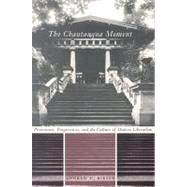
Note: Supplemental materials are not guaranteed with Rental or Used book purchases.
Purchase Benefits
What is included with this book?
| Acknowledgments | xi | ||||
| Introduction: Chautauqua's Liberal Creed | 1 | (14) | |||
| 1. An American Forum: Methodist Camp Meetings and the Rise of Social Christianity | 15 | (32) | |||
|
20 | (5) | |||
|
25 | (7) | |||
|
32 | (12) | |||
|
44 | (3) | |||
| 2. The Never-ending Vacation: Boosters, Tourists, and the Fantasyscape of Chautauqua | 47 | (39) | |||
|
51 | (3) | |||
|
54 | (3) | |||
|
57 | (9) | |||
|
66 | (4) | |||
|
70 | (9) | |||
|
79 | (4) | |||
|
83 | (3) | |||
| 3. Canopy of Culture: Democracy under the Big Tent of Prosperity | 86 | (42) | |||
|
89 | (5) | |||
|
94 | (6) | |||
|
100 | (4) | |||
|
104 | (4) | |||
|
108 | (7) | |||
|
115 | (5) | |||
|
120 | (4) | |||
|
124 | (4) | |||
| 4. The Liberalism of Whiteness: Webs of Region, Race, and Nationalism in the Chautauqua Movement | 128 | (33) | |||
|
130 | (6) | |||
|
136 | (3) | |||
|
139 | (6) | |||
|
145 | (2) | |||
|
147 | (4) | |||
|
151 | (7) | |||
|
158 | (3) | |||
| 5. From Parlor to Politics: Chautauqua and the Institutionalization of Middle-Class Womanhood | 161 | (46) | |||
|
165 | (4) | |||
|
169 | (5) | |||
|
174 | (3) | |||
|
177 | (3) | |||
|
180 | (5) | |||
|
185 | (4) | |||
|
189 | (7) | |||
|
196 | (8) | |||
|
204 | (3) | |||
| 6. Useful Knowledge and Its Critics: The Messiness of Popular Education in the 1890's | 207 | (33) | |||
|
209 | (5) | |||
|
214 | (4) | |||
|
218 | (10) | |||
|
228 | (6) | |||
|
234 | (3) | |||
|
237 | (3) | |||
| 7. Success through Failure: Chautauqua in the Progressive Era | 240 | (46) | |||
|
243 | (8) | |||
|
251 | (3) | |||
|
254 | (5) | |||
|
259 | (5) | |||
|
264 | (5) | |||
|
269 | (5) | |||
|
274 | (3) | |||
|
277 | (7) | |||
|
284 | (2) | |||
| Conclusion: Failure Through Success? | 286 | (9) | |||
| Appendixes | 295 | (6) | |||
|
295 | (4) | |||
|
299 | (2) | |||
| Abbreviations | 301 | (2) | |||
| Notes | 303 | (70) | |||
| Bibliography | 373 | (14) | |||
| Index | 387 |
The New copy of this book will include any supplemental materials advertised. Please check the title of the book to determine if it should include any access cards, study guides, lab manuals, CDs, etc.
The Used, Rental and eBook copies of this book are not guaranteed to include any supplemental materials. Typically, only the book itself is included. This is true even if the title states it includes any access cards, study guides, lab manuals, CDs, etc.